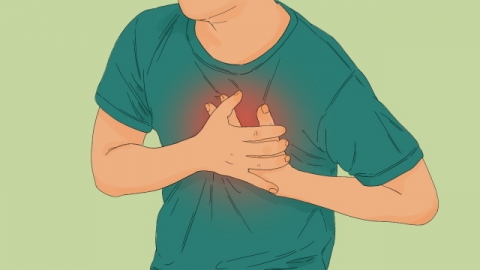Why does one feel emotionally choked or suffocated when having something on one's mind?
Generally, feeling a sense of chest tightness or blockage when troubled by emotional issues may be caused by factors such as emotional stress response, autonomic nervous system dysfunction, neurosis, anxiety disorder, or coronary heart disease. It is recommended to seek medical attention promptly, identify the underlying cause, and receive appropriate treatment under a doctor's guidance. Specific analyses are as follows:

1. Emotional Stress Response: Psychological stress can trigger sympathetic nerve activation, leading to increased heart rate, blood vessel constriction, and a sensation of chest tightness or blockage. Immediately stop current activities, move to a quiet place, and practice deep breathing—inhale slowly for 4 seconds, then exhale for 6 seconds. Repeat several times to calm your emotions.
2. Autonomic Nervous System Dysfunction: Prolonged mental tension disrupts neural regulation, worsening symptoms when emotionally burdened, often accompanied by dizziness and fatigue. Maintain regular sleep patterns and avoid staying up late. Engage in 20 minutes of yoga or jogging daily to enhance nervous system regulation.
3. Neurosis: Psychological factors cause physical discomfort without organic pathology; the feeling of chest congestion fluctuates with emotional changes. Patients may take medications such as oryzanol tablets, vitamin B1 tablets, or diazepam tablets as prescribed, along with psychological counseling.
4. Anxiety Disorder: When preoccupied, anxiety intensifies, causing chest tightness, palpitations, and restlessness. Follow medical advice to use medications like paroxetine hydrochloride tablets, tandospirone citrate capsules, or lorazepam tablets, combined with cognitive behavioral therapy.
5. Coronary Heart Disease: Narrowing of the coronary arteries leads to insufficient blood supply to the heart muscle, with symptoms worsening during emotional fluctuations and a pronounced feeling of chest blockage. Medications such as enteric-coated aspirin tablets, nitroglycerin tablets, or rosuvastatin calcium tablets may be used as directed. In severe cases, percutaneous coronary intervention (PCI) can be performed to expand narrowed vessels and restore blood flow.
In daily life, avoid excessive rumination when facing problems and learn to share your concerns with family and friends to alleviate stress. Eat a light, low-oil diet and reduce intake of high-salt and high-fat foods. Maintain regular physical activity to strengthen cardiopulmonary function and improve emotional regulation.




